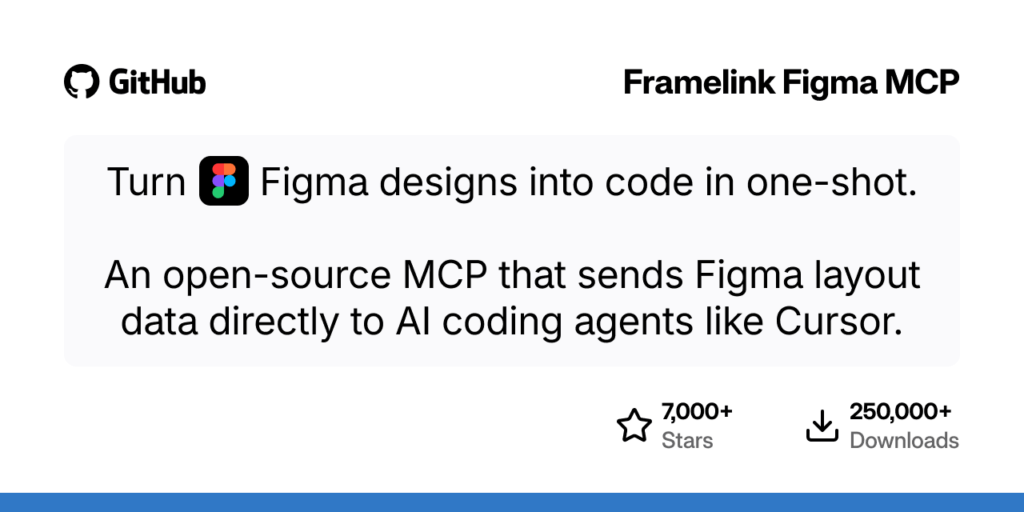Figma Context MCP
Basic Information
This repository provides a Model Context Protocol (MCP) server that gives AI-powered coding agents access to Figma design data. It is designed to be run alongside editor-integrated agents such as Cursor so the agent can fetch a Figma file, frame, or group and receive a distilled representation of layout and styling metadata. The server fetches data from the Figma API and simplifies and translates responses so only the most relevant design information is delivered to the model. The README includes quickstart configuration snippets for macOS, Linux, and Windows, notes about setting a Figma API access token, and references to demos and documentation. The project is published as a tool named in the config examples and is licensed under MIT.
Links
Stars
9926
Github Repository
Categorization
App Details
Features
An MCP server that interfaces with the Figma API and returns simplified layout and styling context for models. Translation and reduction of Figma responses so agents receive only essential metadata rather than raw API payloads. Example configuration snippets for macOS, Linux, and Windows showing how to run via npx and pass a Figma API key and stdio mode. Support for environment variables such as a Figma API key and port in the env field. Targeted integration guidance for Cursor and other AI coding tools. Distributed with an MIT license, multilingual README files, a demo video, and references to quickstart documentation and community channels.
Use Cases
The server makes it practical for coding agents to implement UI designs in one shot by providing concise, relevant Figma context instead of raw API dumps. By reducing the amount of context and focusing on layout and styling, it helps models produce more accurate and relevant code output when asked to implement designs. Integration examples show how to wire the MCP into an editor or agent workflow so the user can paste a Figma link and request implementation. The README highlights a demo workflow and points to quickstart docs, which lowers setup friction and helps teams get an agent-based design-to-code flow working quickly.








